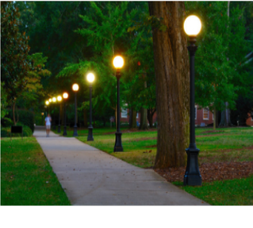Who is Responsible in Criminal Acts of Students?

Are Colleges Responsible for the
Criminal Acts of Students against Students?
The Answer is Most Likely Not . . .
Although most colleges collect criminal history information from applicants, in New York, if a crime is committed by one student against another, the college will most likely bear no liability. Therefore a lawsuit by a student, against a college, for an injury caused by the criminal activity of another student will not often result in compensation .
Historically, colleges and universities have utilized two primary methods to collect criminal history information from applicants: self-disclosure in response to questions on their applications and criminal background checks. Though self-disclosure is the most common practice, approximately 20% of colleges engage in some form of background screening. [1] Regardless, “student on student” crimes still occur on campuses nationwide. And, when they do, colleges and universities in New York will typically not be held responsible.
two primary methods to collect criminal history information from applicants: self-disclosure in response to questions on their applications and criminal background checks. Though self-disclosure is the most common practice, approximately 20% of colleges engage in some form of background screening. [1] Regardless, “student on student” crimes still occur on campuses nationwide. And, when they do, colleges and universities in New York will typically not be held responsible.
In New York, courts have expressly rejected the doctrine of in loco of parentis[DK1] .[2] The doctrine of In loco parentis states that an individual or organization assumes parental rights and duties. This doctrine assumes a relationship similar to that of a parent to a child. Simply stated, except for certain very limited exceptions, in New York, colleges and universities have no legal duty to shield their students from the dangerous activities of other students.[DK2] [3]
The relevant law explains that, in the context of imputing liability to a university,: “[t]he doctrine of in loco parentis no longer applies . . . and the duty of care owed by a university to its students is narrowly drawn.” Specifically, the court explains that a university is not “required to protect [students] from the dangerous activities of their classmates or to monitor students who are antisocial, criminal or even violent.”[4]
The exceptions to the general rule surrounding a college or university’s duty of care in these situations are limited to: (1) when the college is acting in the role of a landlord[5] and (2) when the college has “encouraged its students to participate in an activity and taken affirmative steps to supervise and control the activity.” [6]
Bottom line: These exceptions are so narrowly drawn that a New York college or university’s liability for a crime committed by one student against another is virtually nil.
However, there are still the exceptions to this general rule, and the ability to sue the perpetrator themselves for the crime for money damages.
Visit our website or call the Law Office of Dana Stricker, PLLC to discuss your options at (914) 588-0651.
[1] See Weissman & Rosenthal, The Use of Criminal History Records in College Admissions, The Center for Community Alternatives (CCA), http://www.communityalternatives.org/wp-content/uploads/2020/02/use-of-criminal-history-records-reconsidered.pdf.
[2] Faiz v. Colgate Univ., 64 F. Supp. 3d 336 (N.D.N.Y. 2014).
[3] Pasquaretto v. Long Island Univ., 106 A.D.3d 794, 795 (2d Dep’t 2013.)
[4] See Broeker v. State, 2000 N.Y. Misc. LEXIS 717 at * 14 (N.Y Ct. Cl. 2000).
[5] Miller v. State of New York, 62 N.Y.2d 506, 514 (N.Y. 1984.)
[6] Pasquaretto v. Long Island Univ., 106 A.D.3d 795 (2d Dep’t 2013).
About the Business
Have a question? Ask the experts!
Send your question

